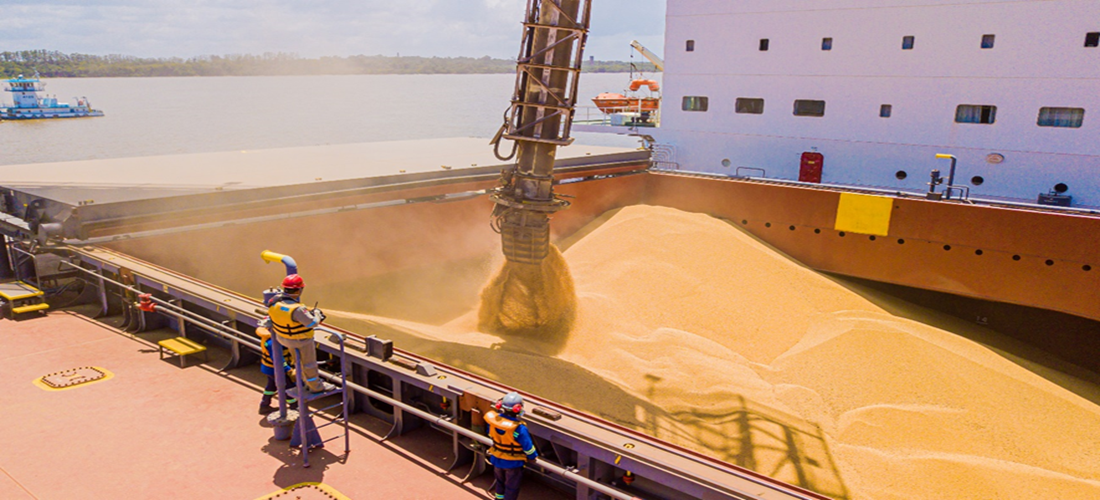
U.S.-China Trade War May Boost Brazilian Soy Exports, Says ANEC
Apr, 10, 2025 Posted by Sylvia SchandertWeek 202517
The new tariffs the United States imposes on products from various countries are expected to reshape the global agricultural trade landscape, potentially benefiting Brazilian soy exports, according to the National Association of Cereal Exporters (Anec) in its monthly report.
According to the organization, although it is still too early to accurately determine the outcomes of these protectionist measures and how other countries will respond, the impacts on international commodity prices are already being felt in the global market.
Pressure on the soy-crushing margins of Chinese industries will likely change the country’s import dynamics. “As these margins come under negative pressure, China tends to slow down the pace of imports and rely on domestic stockpiles—behavior observed during previous trade war periods,” Anec’s report highlights.
Despite this scenario, Chinese demand for soy remains strong, and the organization believes there will be a preference for the Brazilian product, which may become more competitive and boost national exports. Currently, China accounts for 77% of Brazilian soy exports, which totaled 15.7 million tons in March alone.
The report emphasizes that projections for 2025 indicate a potential export volume of up to 110 million tons of soy, representing a historic record for Brazil. In the first quarter of 2025, Brazil has already recorded shipments of 26.575 million tons, a 4% increase compared to last year.
However, Anec warns that the Brazilian agricultural sector remains highly dependent on imported inputs such as fertilizers, pesticides, and machinery. “If trade tensions impact global supply chains, the costs of these inputs could rise substantially, compromising competitiveness,” the association notes.
As a counterpoint to possible challenges, the report highlights that the recent agreement between Mercosur and the European Union could open new trade opportunities for Brazil. “Our country has strong potential to expand its presence in new markets. In this context, it is essential to take advantage of the opportunities stemming from the agreement, diversify the export portfolio, and broaden the range of destination markets,” the document concludes.
The trade war scenario comes at a favorable time for Brazilian grain production. According to the National Supply Company (Conab), the 2024/25 soy crop has the potential to reach 172 million tons. By the first week of April, the harvest had already covered 85.3% of the planted area, surpassing the five-year average for the same period.
Source: Jornal do Comércio
-
Trade Regulations
Oct, 21, 2020
0
Brazilian agribusiness exports to China rising steadily
-
Ports and Terminals
May, 29, 2024
0
PortosRio Modernizes Port Management with New Computerized System
-
Fish
Dec, 21, 2018
0
Mar del Plata sees a big rise in shrimp catch in 2018
-
Ports and Terminals
Sep, 29, 2020
0
Cargo handling at Paranaguá Container Terminal grows 7% YoY in first 8 months



